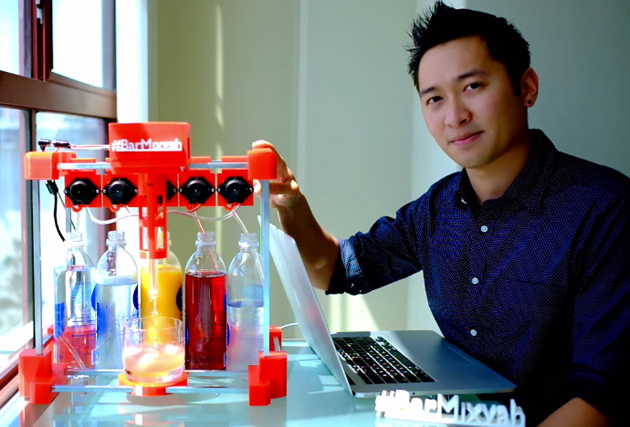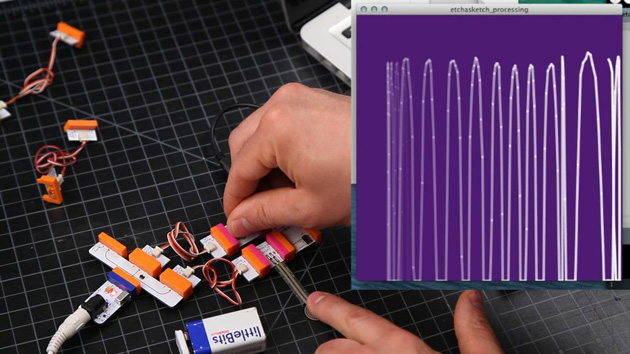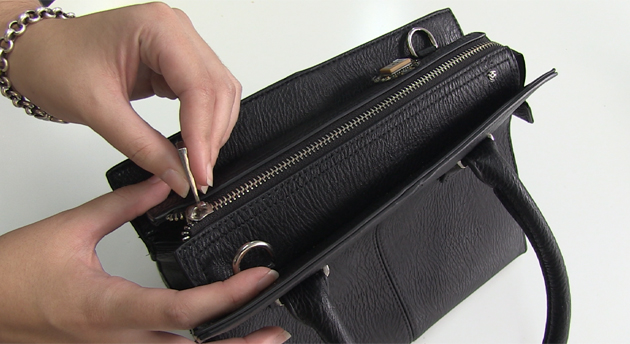
The idea of a connected kegerator isn't anything new. We've seen quite a few startups build high-tech kegs -- even
Google has gotten in on the action. Those projects, however, require quite a bit of technical know-how. Now there's an easier solution for the beer enthusiasts: Kegbot. Kegbot is a bit different simply because it handles most of the geeky stuff for you. To get the device up and running, you just have to connect a flow sensor to your keg's line, and connect the pre-made board to your favorite Android tablet. With a minimal amount of effort, the device can track how much beer is left in your keg, who's drinking it and what days of the week you're consuming the most booze.
Creators Mike Wakerly and Eric Webb have been at the smart keg game for a while. The two originally sold Kegbot as a do-it-yourself open-source project. They realized there was a market for a little easier option, and developed the plug-and-play version they're currently raising money for on Kickstarter. We recently met up with the team to see the device in action. %Gallery-slideshow164837%
Filed under: Household, Wireless, Alt
Comments

 Today on In Case You Missed It: The FlowHive is a new bee colony rig that allows beekeepers to tap the honey easily by cranking open the honeycomb design, creating a channel down to the spout. Japanese inventors created a throwable robot that flies through the air as a sphere, then unfurls four legs to scuttle its way onward. And maker Alan Phan re-created the God Hammer aka Mjolnir aka Thor's cool hammer-- with an Arduino-controlled fingerprint scanner and a super-charged electromagnet.
Today on In Case You Missed It: The FlowHive is a new bee colony rig that allows beekeepers to tap the honey easily by cranking open the honeycomb design, creating a channel down to the spout. Japanese inventors created a throwable robot that flies through the air as a sphere, then unfurls four legs to scuttle its way onward. And maker Alan Phan re-created the God Hammer aka Mjolnir aka Thor's cool hammer-- with an Arduino-controlled fingerprint scanner and a super-charged electromagnet.











